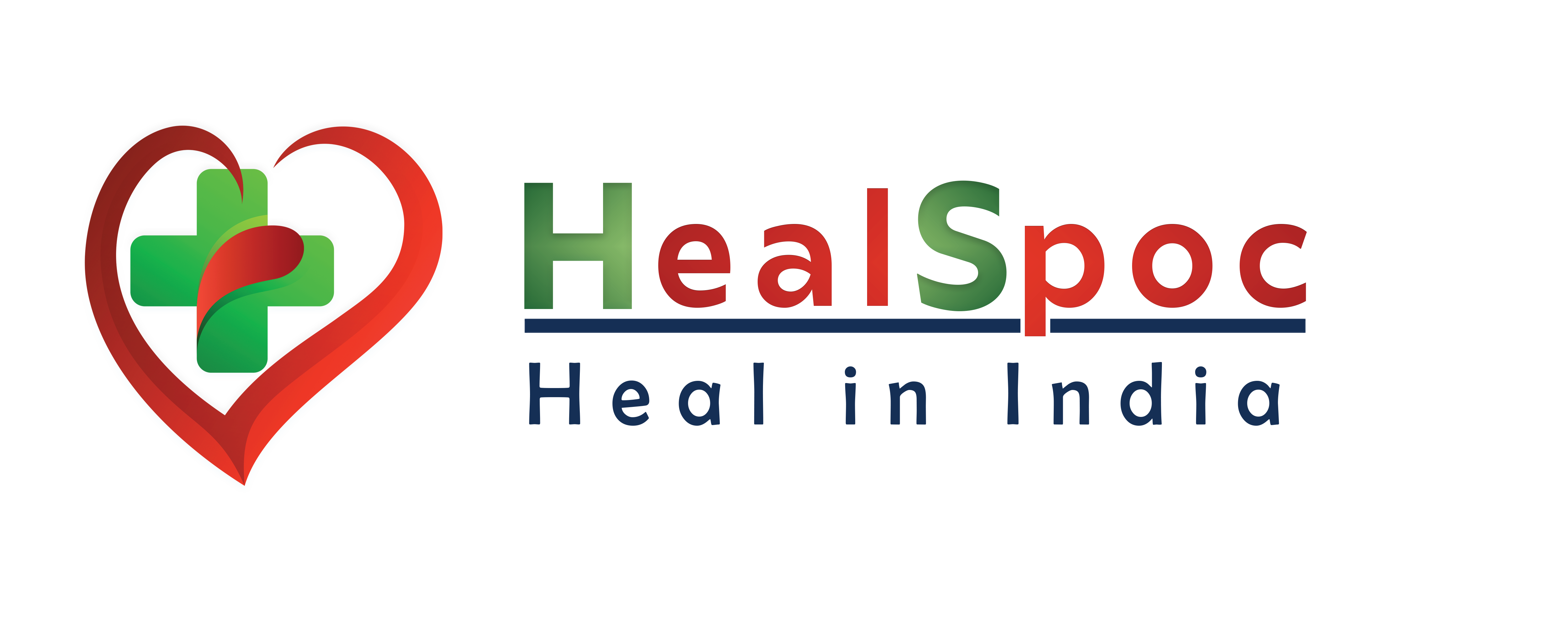DEEP BRAIN STIMULATION COST IN INDIA
- Introduction
- Symptoms
- Risk Factor
- Preparation
- Procedure
- Post Procedure
- Success Rate
- Top Doctors
- Top Hospitals
Deep Brain Stimulation (DBS) Surgery in India: Costs, Information, and Support
Treatment Duration: Deep Brain Stimulation (DBS) surgery typically takes 4 to 5 hours.
Length of Stay: Patients usually stay in the hospital for 3 to 5 days and require approximately 30 – 45 days of recovery outside the hospital.
Anesthesia: DBS surgery may involve local and general anesthesia.
Cost: The cost of Deep Brain Stimulation Surgery (DBS) in India generally ranges from $22,000 to $28,000 USD.
If you are searching for information about the cost of DBS surgery in India or looking for the best neurosurgeons and hospitals in cities like Delhi, Mumbai, Chennai, Kolkata, and Bangalore, HealSpoc Healthcare Services is here to provide you with the answers you need. We have also compiled a list of top hospitals and surgeons based on qualifications, experience, success rates, and patient testimonials to ensure that you receive the best care and guidance.
Cost Breakdown:
Deep Brain Stimulation Surgery Cost: Starting from $25,000 to $32,000 USD.
Apartment Costs Near the Hospital: Usually range from $50 to $150 USD, depending on the services provided.
Food Expenses: Generally begin at $20 USD per day, per person.
Private Transport: Starting at $50 USD per day.
Miscellaneous Costs: Approximately $20 USD per day.
Please note that these are estimated costs, and the final treatment plan will be determined after a fresh evaluation. The expenses for Deep Brain Stimulation Surgery in India may vary based on factors such as diagnosis, the patient’s condition, surgeon experience, implant quality, hospital facilities, and the city of treatment.
If you wish to schedule an appointment, gain a deeper understanding of DBS surgery, or have questions, our experts are available via phone, WhatsApp, or Viber at +91 9611027762.
Why you should choose HealSpoc Healthcare Services?
With over a decade of experience, we are a leading healthcare services provider, offering the best treatment in India at an affordable cost and guiding international patients to choose the top destination in India based on their budget and treatment requirements. We prioritize 100% transparency, helping you select the best treatment options, connecting you with highly skilled neurosurgeons, and ensuring a high success rate of procedures with international standards.
Understanding Deep Brain Stimulation (DBS):
Deep brain stimulation (DBS) is a surgical procedure that involves implanting electrodes, a device known as a brain pacemaker, to send electrical impulses to specific areas of the brain that control movement, pain, mood, weight, and wakefulness. DBS is used to treat conditions like Essential tremor, Parkinson’s disease, Tourette syndrome, Chronic Pain, Dystonia, and Epilepsy.
Types of Deep Brain Stimulation:
- Subthalamic DBS
- Globus pallidus DBS
- Thalamic DBS
- Pedunculopontine nucleus DBS
Signs and Symptoms Indicating DBS Surgery:
DBS is used to treat various medical conditions, including:
- Essential tremor
- Multiple sclerosis
- Dystonia
- Psychiatric conditions
- Alzheimer’s disease
Risk Factors of Deep Brain Stimulation (DBS) Surgery:
Risk factors associated with DBS surgery may include:
- Bleeding in the brain
- Stroke
- Brain swelling
- Vision and speech defects
- Infection
- Coma
- Breathing problems
- Nausea
- Heart problems
- Seizures
Preparing for Deep Brain Stimulation (DBS) Surgery:
Preparing for DBS surgery includes:
Selecting the best neuro hospitals in India or abroad and a top neurosurgeon for better results.
Undergoing pre-surgery check-ups, including blood tests, ECG, echocardiogram for cardiac evaluation, and urine tests to assess fitness for surgery.
Signing a consent form before the operation, granting the surgeon permission to proceed with the treatment.
Informing the surgeon about any medications you are taking.
Admitting to the hospital on the day of the procedure on an empty stomach while fasting.
Stopping blood-thinning medications ten days before surgery after discussion with the doctor.
How Deep Brain Stimulation (DBS) Surgery is Done:
To identify the diagnosis, doctors often recommend a comprehensive evaluation, including blood investigations, CT scans, magnetic resonance imaging (MRI) for brain imaging studies, angiography (imaging the brain’s blood vessels), and ventriculography (imaging the brain’s ventricles). Before surgery, the surgeon and anesthesia provider will guide you about the benefits and risk factors of DBS surgery.
Step 1 – Anesthesia: DBS surgery typically takes 4 to 5 hours, depending on the procedures, and is performed under local or general anesthesia to relieve pain.
Step 2 – The Incision: DBS surgery is usually done in two stages:
First Stage (Brain Surgery): In the first stage, the patient goes under local anesthesia. The patient’s head is placed in a rigid frame using small screws, called frame-based stereotaxis. The neurosurgeon makes a small hole in the skull to insert a thin wire lead, which is placed in a particular part of the brain. A wire goes under the skin and connects to a pulse generator implanted near the collarbone.
Second Stage (Chest Wall Surgery): In the second stage, the patient goes under general anesthesia. A small incision is made below the collarbone. A wire goes under the skin and connects the electrode to the neurostimulator, which is programmed to send continuous electrical pulses to your brain.
Step 3 – Closing the Incisions: The neurosurgeon closes the skin incisions using sutures, skin adhesives, tapes, or clips.
Post-Procedure Care:
Post-surgery care includes:
Guidance from the doctor regarding recovery, incision care, medication management, and other post-operative instructions.
Removal of stitches or staples after a few days of surgery.
The batteries of the neurostimulator may need to be changed every 3 to 5 years.
Success Rate of Deep Brain Stimulation (DBS):
The success rate of DBS surgery depends on the patient’s condition and the surgeon’s experience. While every surgical procedure carries some risk, DBS has a relatively low risk, with approximately only a 2% risk. It’s important to note that DBS does not cure the underlying disease but may help alleviate symptoms.
Top Best Neurosurgeons in India:
Dr. Priyamvadha K – Neurosurgeon, Consultant – 21 years of experience
Dr. Aniruddh Jagannath – Neurosurgeon, Consultant – 18 years of experience
Dr. K M Bopanna – Neurosurgeon, Head of Department – 24 years of experience
Dr. Praveen Ganigi – Neurosurgeon, Consultant – 19 years of experience
Dr. Sathwik R Shetty – Neurosurgeon, Consultant – 19 years of experience
Dr. Ganesh Veerabhadraiah – Neurosurgeon, Consultant – 20 years of experience
Dr. Rajakumar D V – Neurosurgeon, Director – 31 years of experience
Dr. Satish Satyanarayana – Neurosurgeon, Additional Director – 32 years of experience
Dr. SS Praharaj – Neurosurgeon, Consultant – 32 years of experience
Dr. Arun L. Naik – Neurosurgeon, Head of Department – 17 years of experience
Dr. K Kartik Revanappa – Neurosurgeon, Consultant – 22 years of experience
Best DBS Hospitals in India:
Manipal Hospital
Sparsh Super Speciality Hospital
Apollo Hospital
Fortis Hospital
Aster RV Hospital
Sakra World Hospital
Yashodha Hospital
Global Hospital
Narayana Hospital
For more information, guidance, or to submit an inquiry, please don’t hesitate to reach out to our experts. We are dedicated to helping you access the best healthcare options in India.
-
Facebook
-
Twitter
-
Linkedin
-
Whatsapp
-
Telegram
-
Viber
-
Line





